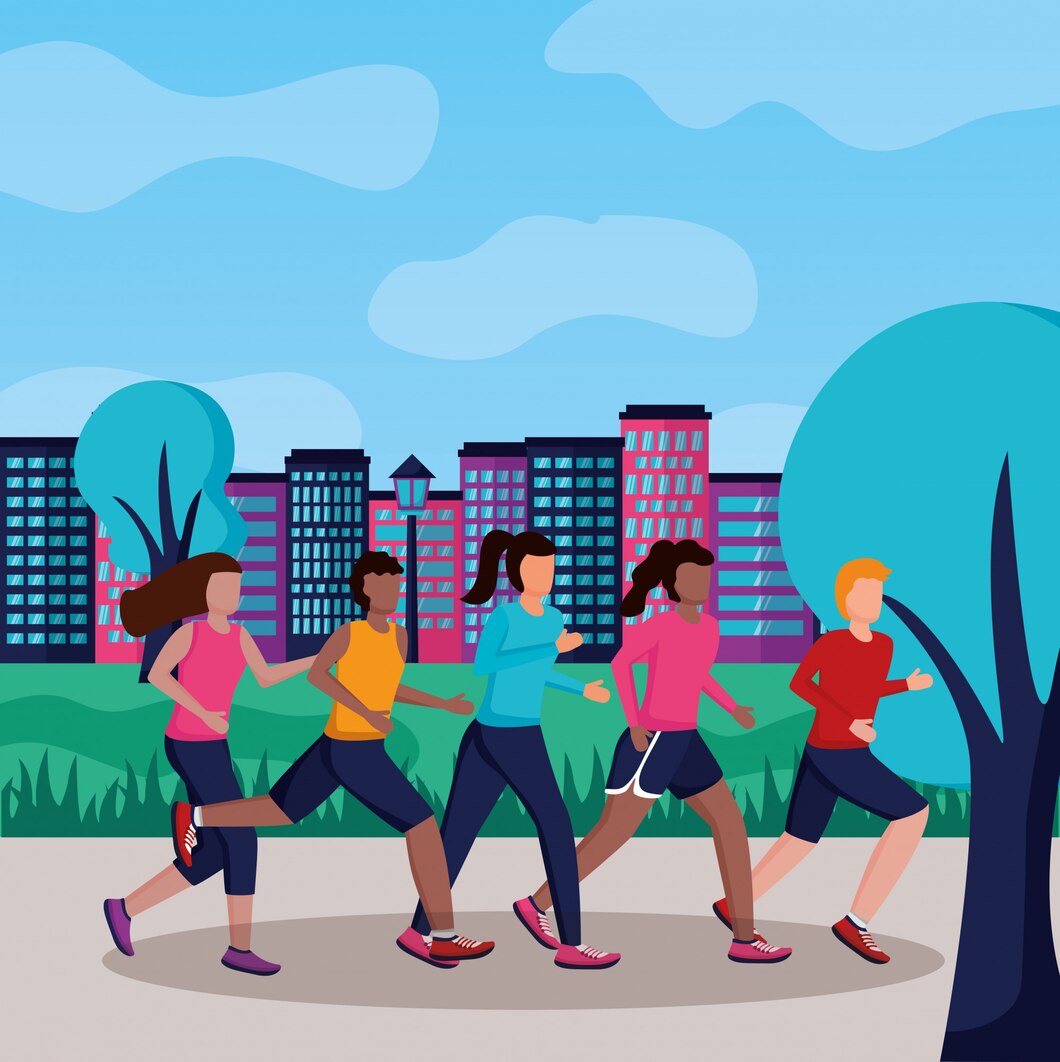

Running has always been a simple yet effective method to stay fit, but the growing popularity of marathons among Dhaka's youths is elevating this activity to new heights. Marathons not only provide physical benefits, but they also bring people together, provide a sense of accomplishment, and promote a healthy lifestyle. In recent years, the youth of Dhaka have expressed a strong interest in such events, indicating a trend toward fitness and well-being. The growing number of running events and participants each year shows the love of Dhaka's youths for marathons.
Khalid Mashfique, co-founder & head of Creative Strategy at LIE TO EYE, has been a regular participant in various running competitions in Dhaka. According to him, there is a taboo among the running community in Bangladesh about the distinction between full marathons (42 km), half marathons (21 km) and other short distance competitions, when almost all running events here are labeled as 'Marathon' or 'Half Marathon'. "Most of the running competitions are of 5, 7.5, 10, and 15 km, organised by groups like Run Bangladesh and Ultra Camp Runners," says Khalid, who has participated in nearly 20 short-distance events, two half marathons, and one full marathon, which is the Bangabandhu International Marathon held in February this year.
Khalid described the registration process as straightforward and usually completed online. Participants register on a priority basis until slots, which typically range from Tk 1,500 to 3,000, are full. Participation fees range between Tk 500 and Tk 1,500, with free events being rare unless sponsored by government or corporate entities. "The kit distribution event is organised usually two days before the running event and it's a fun part where runners can socialise and form groups prior to the competition to be motivated to run in a group setting," Khalid says, emphasising the community aspect in these events.
Arpita Chakraborty, a graduate student in Economics at the University of Dhaka, participated in her first half marathon at the Dhaka Women's Marathon. She learnt about the event from a registration booth at her hall. "The registration process was user-friendly and accessible, conducted both online and offline," Arpita says. Her inspiration came from a desire to try something new, and she prepared by doing some light jogging a few days before the event.
Both participants emphasise the importance of adequate preparation and fitness. Khalid mentions the role of running instructors in the community who provide training and tips for endurance and weight control. He advises at least three months of preparation for marathons, two months for shorter distance running events and notes that body weight plays a significant role in running longer distances.
During the marathon, Khalid found the experience of participants to be largely dependent on the organisers. Experienced organisers like Run Bangladesh and Ultra Camp Runners ensure hydration booths, washrooms, snacks, and medical assistance along the running track. However, events like the Joy Bangla Half Marathon, organised by Bangladesh Police, faced some logistical issues. "The organisers had some issues like running out of snacks and medical supplies in booths, but they perfectly managed the post-running event where the participants are exhausted and they just want to go home with their medals and gifts," Khalid says.
Arpita found the Dhaka Women's Marathon refreshing and exhilarating, although she did mention some end-management issues like delaying the prize giving ceremony. She completed her 2.7 km run within the designated time and received a certificate, with medals awarded to the first 350 competitors.
Regarding female participation, Arpita believes the scenario is improving. "Opportunities are growing, and women are becoming more health-conscious and confident in trying new experiences," she observes. Organisers provided necessary support and facilities, such as water and breakfast arrangements. To encourage more women, Arpita suggests creating mass outreach on these matters.
Both interviewees see a growing trend of marathon participation among Dhaka's youths. Khalid attributes this to increased health awareness post Covid-19 pandemic, while Arpita notes the general rise in health and fitness consciousness. Khalid also highlights the sense of achievement and community that motivates participants. "The feeling of completing a marathon, despite the challenges, is incomparable," he remarks.
Looking ahead, both Khalid and Arpita are optimistic about the future of marathon events in Dhaka. Khalid suggests making these events more professional and recognised internationally, which would motivate more people to participate. "There should be a chip timing system to keep track of participants' progress, which is common in professional events," Khalid suggests. Arpita emphasises the need for smooth management and organisation to boost engagement and participation.
The trend of participating in marathons among Dhaka's youths is on the rise, driven by health benefits, community engagement, and the thrill of achievement. With continued support and improved organisation, these events have the potential to become a significant aspect of the fitness culture of Dhaka.
contact.iftekhar.tne@gmail.com


 For all latest news, follow The Financial Express Google News channel.
For all latest news, follow The Financial Express Google News channel.